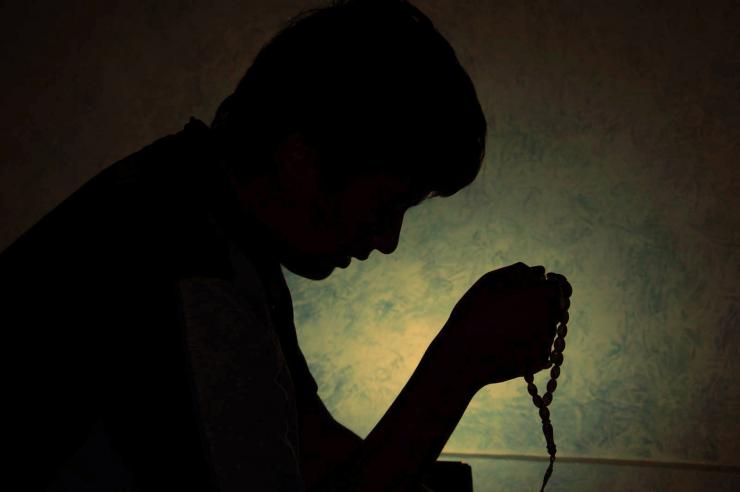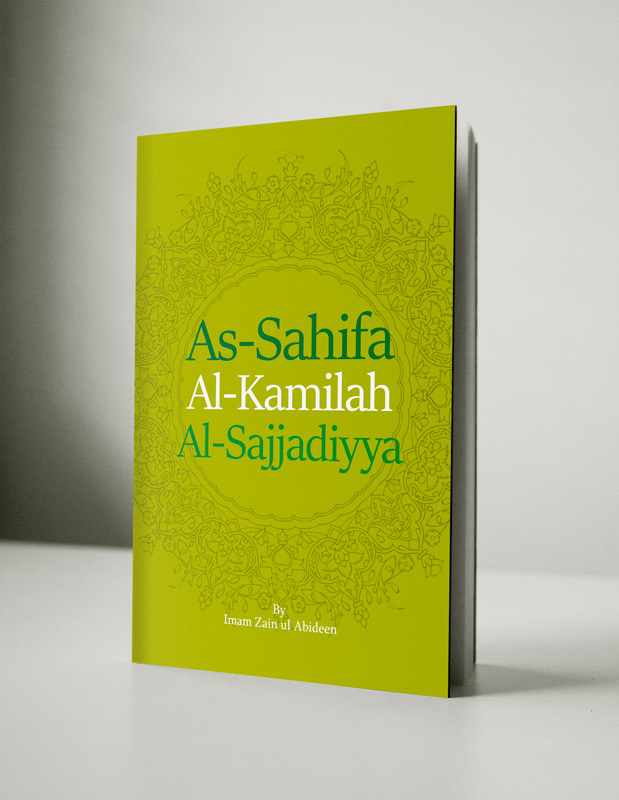How to Have concentration in the Prayer (20 Recommendations)
 Describing the faithful persons (Mo’menin ), Allah (st) says in Holy Quran they are those whose hearts are present in their Salah. Our prophet also says Allah (st) would not accept the prayer of the man whose heart is not present in his prayer. But how can we have a present heart in our Salah? There are 20 practical points that might be helpful:
Describing the faithful persons (Mo’menin ), Allah (st) says in Holy Quran they are those whose hearts are present in their Salah. Our prophet also says Allah (st) would not accept the prayer of the man whose heart is not present in his prayer. But how can we have a present heart in our Salah? There are 20 practical points that might be helpful:
- Setting the Prayer Scene and Burning Incense
The place you say your Prayer should be special. Every item that can distract you from your Prayer should be taken care of. The room should be the one that you don’t use regularly, and should be neat and clean, a comfortable temperature, and dark. With comfortable temperature, you do not have to worry or entertain thoughts that may distract you when the room is hot or cold. Human skin is filled with thermal receptors that will constantly remind you of any discomfort to your body.
- Wudhu as a Way to Increase Your Attention
Wudhu (formal/minor ablution) is one of the most effective ways to prepare the scene for your daily Prayer. It has powers to re-organize your thoughts before Prayer and assist you in offering your Prayer with confidence and not to be swerved by Satan, The Accursed.
- Understanding and Appreciating Allah (SWT)’s Presence
It is always to your benefit if you were to ponder the Existence of Allah (SWT) and His Power, Signs and Decisions related to this world and the next. Appreciating His presence is one way of bringing humility into your heart and humbling yourself in Prayer, performed with attention and concentration. It is only He Who looks at you Mercifully during your Prayer, and you ought to keep this in mind every time you say your Prayer.
- Reminding Yourself Of Allah
One of the reasons why Adhan and Iqamah have been much emphasized before Prayer is to establish a strong link between the worshipper and his Creator, before he ventures into this sacred journey of Prayer and be in direct communication with The Almighty. This way, you start reminding and convincing yourself of the presence of Allah (SWT) before you begin Prayer.
- A Relaxed and Alert State of Mind
An alert state of mind is one of the many vital ingredients of Prayer. If you are tired and exhausted, it is better to rest and do some deep breathing and relaxation exercises before you make the commitment to stand in front of your Lord.
- Understanding What You Recite
It is clear that if you don’t strive to learn and appreciate the meanings of the verses and glorification you proclaim in your Prayer, you stand very little chance of developing and maintaining the concentration you need to focus in Prayer. Focusing on the meanings of what you recite would generally keep your mind busy and involved in Prayer.
- Proper Pronunciation
Arabic language is considered one of the sweetest of all the languages. So, reciting Prayer with proper Makhaarij (proper pronunciation) and Tajweed (following the rules of the Arabic Language) and learning the rules of reciting The Qur’an, would make your efforts in maintaining attention a lot easier.
- Alternating Recitations
Next, you need to alternate recitations by reciting different chapters of The Qur’an, different supplications and different forms of glorification in your Prayer. This is vital because your brain will not become accustomed and habituated to what is being recited daily and switch off attention to something else.
- Continued Cleanliness
An important and attractive aspect of Islamic teaching is related to cleanliness. It means to be ritually pure at all times by performing ablution (wudhu) and ghusl (major ablution) whenever necessary.
- Seeking Forgiveness and Accepting Limitations
After every Prayer you should seek forgiveness, as this will indirectly increase your attention and concentration during Prayer and bring you nearer to Him. While reciting this invocation, you should sincerely repent to Allah (SWT) that the Prayer you just finished was not up to the required standards and pray to be forgiven for it by The Merciful Lord. Then, you return to Him promising that the next Prayer will be a better one. This process in itself is a motivation to perform better next time you stand before the Almighty. Accepting faults will create in you desire to perform even better.
- Stress Management
Of the important cordial disciplines of worship, especially the invoking worship, one is tranquility. The person who prays should perform his worship with quietude of the heart and a tranquility of the mind.
- Moderation In Eating
Eating and drinking is also one of those matters with regard to which people go to extremes and, of course, mostly towards excess. No doubt, you need food to live and it is necessary that food should reach the cells of your body to maintain life. However, the important question is how much food your body needs and whether excessive food is good or harmful.
- Checking And Inspection
Keep track of the level of your attention and concentration in Prayer. If it is the right level, give thanks; if wrong, ask for forgiveness.
- Putting Thoughts in Writing
Unfortunately, in any relaxed state and in particular the Prayer, it is only human to have numerous creative thoughts, as well as recollections of things you forgot or need to do. These thoughts may haunt your continued meditation if you don’t write them down.
- Removing Obstacles
Also, before the Prayer, all obstacles in attaining heart’s presence must be removed. As such, you should relieve yourself before starting Prayer, and you should satisfy your hunger or thirst as well. Also, since over-eating creates a lack of attention and concentration, you should observe moderation if you have to eat before Prayer.
- Grief-Stricken, Submission and Sadness
No doubt, sadness brings to your soul many benefits, one of which is a revolution of the soul. It is the time when you are sad and grief-stricken, that you are able to fully organize and empower yourself to be most attentive in Prayer. It is widely accepted that a sad mind is more attuned towards an objective (Allah (SWT), in this case) and more capable of maintaining a high level of attention and concentration.
- Patience, Accepting Fault, and Addressing The Problem To Allah (SWT)
You should be patient with your practice of attention. You do not perform masterfully the first time in any given circumstance. It is the continued practice of meditation, relaxation and attention that reaps benefits. You should not expect specific benefits in a short period of time. Invoking Allah (SWT) and addressing your problem of inattention is a good practice, as He would definitely assist you in this matter.
- Arresting Thoughts
Because any individual’s mind is filled with thoughts at all times, he is supposed to arrest them, and put a stop on them during Prayer. When a thought comes, a command stop is used subconsciously to arrest and halt that thought and the person does not dwell on it. If this strategy is used on all incoming thoughts, then one will assume command and control over his incoming thoughts during Prayer.
- Remembrance Of Death
Great Scholars have advised you to keep busy reminding yourself of death as a way to fear Allah (SWT) and maintain vigilance in your daily Prayer and communication with Allah (SWT). The idea is to develop piety and fear in you and to convince your soul the importance of Prayer.
- Fixing Your Gaze
The Prophet (S) has said: “While a person is in the standing position during Prayer, he must be looking down fixing his gaze to the point where he places his forehead while in prostration; while in Ruku’ (bending position) the gaze should be between his two feet; while in Qunoot (when he raises his hands reciting the invocation) he should fix the gaze on the palms of his hands, placing them in front of his face; during Sajdah (prostration) his eyes looking at his nose; and while in the final sitting position the gaze to be towards his armpits.”





